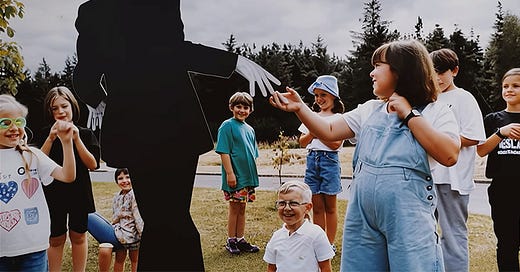Pulp and new album More: never rush, never change
The same spirit that prevented the band from giving up in the 1980s now gives us Pulp's first album in 24 years
Pulp were famously late bloomers, and they’ve proved to be slow at gearing up again. By the time Sadie Frost was pushing Jarvis Cocker around a supermarket, the same year they headlined Glastonbury as a last minute replacement for The Stone Roses, they’d been at it in one guise or another for 17 years. Most people presumed A Different Class was the band’s debut album, but real fans knew it was their second, after the Mercury Prize-nominated His ‘n’ Hers: their 3 albums before that – commercial and critical flops, It, Freaks and Separations – were struck from the books completely. It only further endeared them to a public who instantly loved them once they knew they existed. God loves a trier, and while Damon Albarn did his best to conceal the alpha ambition he shared with two brothers who flagrantly made it their brand, it felt more relatable to back a band who you knew had once been losers.
Pulp fizzled out like everything else Britpop – a movement of bands that were self aware enough to know that the party was over, but not enough to bring themselves to leave. Final album We Love Life (2001) wasn’t bad, but what a parting shot 1998’s strung-out and claustrophobic This Is Hardcore would have been. Around the same number of people noticed Pulp’s split in 2002 as had bought It, Freaks and Separations. An exaggeration, perhaps, but it was a very quiet exit for a group who’d managed to make the everyday so uniquely flamboyant. Cocker has reflected on it since the band’s first reunion tour in 2011, which was not a quiet affair. For a couple of years they played the hits at the top of festival bills as if it was 1995 again. They gave no interviews because there was no new music to speak of, and everybody was happy with that. In Cocker’s mind, as he told Rolling Stone last week, “It was my attempt to tidy up,” following an unworthy ending to a band he started when he was 15. “I thought that was going to be the full stop,” he said. “To finish it in a nice way and make it a pleasurable memory, rather than a slightly painful memory. Which it DID do.” And yet a second reunion tour was announced in 2022, appearing a little more cynical than the last until Pulp started drip-feeding new songs into their shows in late 2024. Those songs now all feature on the band’s first album in 24 years – longer, even, than it took for Pulp to be noticed in the first place.
My hot take on More, when a friend asked me what it’s like after I’d listened to it only once, was: “It’s very Pulpy”. (Do the Pulitzer judges get in touch directly, or is there a form I need to fill in?) It wasn’t a criticism and is true on first listen… and every listen to the opening 3 songs. ‘Spike Island’, ‘Tina’ and ‘Grown Ups’ spring More from the traps in such familiar fashion they scrub out the last quarter century, and the years post-A Different Class too. It can’t be as simple as hearing Jarvis Cocker pant, whisper and teeter on hysterics again, as we’ve heard plenty of music from him through the Pulp-less years, in Suicide-ish duo Relaxed Muscle, solo albums, recent band Jarv Is, and haunted hotel song cycle Room 29, with Chilly Gonzales. He might save rhyming “tarts and vicars” with “get in somebody’s knickers” for this particular group (and it’s a thrill to hear him be so self-assuredly Carry On once again), but the quintessential, shimmying Pulp sounds is equally down to Candida Doyle’s vintage synth sound and the warm fuzz tone that sends Mark Webber’s simple solos higher than countless guitarists who’ve tried much harder and come up short. In the same Rolling Stone interview Cocker laid the sound of the band at drummer Nick Banks’ door: due to Banks playing so loudly the rest of the group have always had to fight to be heard, giving Pulp a frantic energy that helped make the increasingly hurried ‘Common People’, a song that almost races out of control by its end, such a hit. It counts for Cocker too, who often works himself up from a hushed hello into a desperately strained yelp. He does that on the opening ‘Spike Island’, More’s lead single and most lasting earworm. It features a verse that no Pulp fan will let pass by unnoticed, or disagree with: “I was born to perform / It’s a calling / I exist to do this / Shouting and pointing.” No one has ever quite shouted and pointed like Jarvis Cocker, a man who can be identified by his silhouette, as he was on Pulp’s 2011 reunion tour, which started each night with the band performing ‘Do You Remember The First Time?’ from behind a back-lit curtain.





